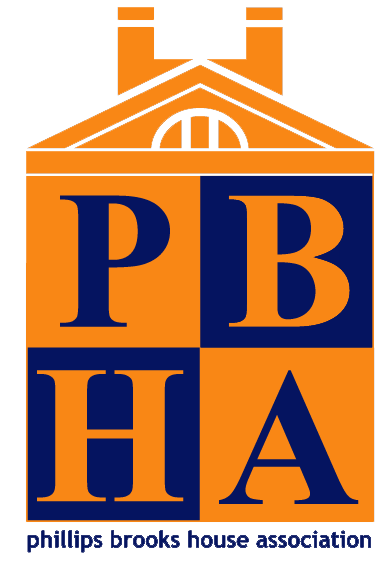Story #21: Katya Smyth and What the Homeless Shelter Meant to Her
In November of her freshman year, Katya F. Smyth ’93 received a call from John H. Finley IV ’92 — a director at PBHA’s homeless shelter and a former high school classmate of Katya’s — asking if she could fill in an overnight shift for a volunteer who hadn’t shown up.
From that shift onwards, Katya was “hooked.” It was a complicated time for her personally, but with its volunteers and guests who cared for her and its endless hosts of lessons — far more nuanced and accurate than what she had learned in the classroom —, “working at the shelter made sense,” she said.
Katya would continue to volunteer at UniLu — the then-nickname for PBHA’s homeless shelter, an abbreviation for University Lutheran Church which hosts the shelter, now referred to as Harvard Square Homeless Shelter —, eventually becoming a co-director of the program. Katya also volunteered at Response — a sexual violence hotline for the Harvard community —, drove the FoodSalvage van — a former initiative that delivered leftover dining hall food to nearby shelters —, and co-directed at the St. James Summer Shelter.
While volunteering, Katya realized that many of the presumptions preached in classes, media, and conversations about the unhoused population were flawed.
Some nights, Katya would drive guests in a van to an “overflow” shelter at a nearby town. The cohort was often men larger than Katya who grew rowdy late in the night. Yet, Katya said “I never felt in danger, and I never was in danger.” Each time she drove the guests, a couple of guests would sit at the seats right behind her and “not let anybody mess with me,” she said.
“I have never been hurt by a homeless man. I have been hurt by the very, very privileged men who have housing, who have degrees, who have lots and lots of other things,” Katya said.
In her senior year, Katya and a friend were in a restaurant that had a carbon monoxide leak, knocking both her and her friend out. Though she had initially planned on going to medical school, after that incident, memorization was far more difficult and medical school no longer felt like an option.
Katya found solace among the guests at UniLu. They understood the adversity she had gone through and were able to empathize and provide comfort in ways that others could not.
“What’s really extraordinary is society does not see folks that are living on the streets as truly human, and yet their ability consistently throughout my Harvard career to see me as human was pretty profound for me,” Katya said.
Even the notion of safety at shelters was turned on its head during Katya’s time as a volunteer. As she walked to her winter shifts, Katya would often see unhoused women lying on top of grates that pumped hot air out. When Katya proposed the idea of the women coming into the shelter — which would allow women to come sit in the kitchen for the night, even if the beds had all been filled —, the women revealed that they felt safer staying outside.
“We need to listen to why that person doesn’t feel safe in a shelter and assume there is some reason for it,” Katya said.
After graduating, Katya received a grant to develop a transitional housing program for women who had fallen through the cracks called On The Rise. Katya began the shelter with women she had met at the shelters, intending for it to be a community for and by women (since its inception, On The Rise has expanded to embrace gender-fluid individuals as well).
On The Rise’s relationship-oriented model was very effective, said Katya. Women from across the country descended upon the facilities, hoping to join.
“We started getting visitors from around the state, and then the region, and then the country,” Katya said. “We had visitors from South Africa, and we had visitors from Japan. A teeny, tiny program! How are you more effective with these women?”
After twelve years at On The Rise, Katya began the Full Frame Initiative. Initially, Full Frame Initiative began as a project within On The Rise, but later split off to operate independently. Now 15 years old, Full Frame Initiative is a national organization that seeks to allow everyone — regardless of race, gender, or other factors — to effectively manage their wellbeing.
“It all goes back to what it actually means to be seen and allowed to be whole,” she said. “That’s where we started — with PBHA.”
Written by Darcy G Lin ’27
